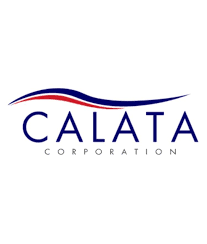Court fines Calata officers for misleading disclosure
The Securities and Exchange Commission reported that the officers of delisted company Calata Corporation have been sentenced to pay fines totaling P8 million for making misleading and exaggerated statements.

The commission said these statements were about the firm’s supposed Mactan Leisure City project which had induced the public to buy Calata Corporation shares in 2016.
In a decision promulgated on May 28, Branch 148 of the Makati City Regional Trial Court found Calata Corporation Chairman, President and CEO Joseph H. Calata guilty beyond reasonable doubt of two counts of violation of Section 24(d) of Republic Act No. 8799, or the Securities Regulation Code (SRC).

Calata Corporation Corporate Secretary, Compliance Officer, and Corporate Information Officer Jose Marie Fabella was likewise found guilty of two counts of violation of the same law.
The SEC said Calata and Fabella were sentenced to pay fines amounting to P4 million each, or to serve time in prison should they fail to pay the fines on account of insolvency.
Meanwhile, the case was archived with respect to Michael I. Foxman, chief executive officer of Sino-America Gaming Investment Group LLC, Calata Corporation’s partner for the Mactan Leisure City project, who was charged with the same violations, but remained at large.
Section 24(d) of the SRC penalizes anyone who directly or indirectly makes false or misleading statements with respect to any material fact, which he knew or had reasonable ground to believe was so false or misleading, for the purpose of inducing investors to buy a security listed or traded on an exchange.
The decision follows a case buildup from the Securities and Exchange Commission (SEC), which started monitoring the market activities of Calata Corporation amid a sudden surge in the daily trading volume of the company’s shares on the Philippine Stock Exchange (PSE)on August 23, 2016.
Fabella, with the consent and authority of Calata, was found to have made misleading statements in the company’s disclosures to the PSE about its partnership with Sino-America Gaming and Macau Resources Group Limited for the development of a $1.4 billion integrated resort and casino project called Mactan Leisure City.
In the disclosure, Calata Corporation stated that the Mactan Leisure City was expected to start operations in 2020, was “poised to become a game changer in the region’s family leisure tourism and gaming offering,” and was expected to generate a gross annual revenue of P55.74 billion.
Trading volume in Calata shares surged by 2,455 percent on the same day the subject disclosures were made, followed by a 196.41 percent jump in the next trading day.
“The August 23, 2016 disclosure contained unfounded promises and exaggerations,” the trial court held, adding that such statements “are not clearly referred to as mere forecasts and are couched and exaggerated to such extent that the public may be misled in thinking that the project would start its operations in 2020, generate a certain amount of revenue, and entail job opportunities.”
These statements were disclosed despite the fact that no application for a license had been made to the Philippine Amusement and Gaming Corporation (PAGCOR) for the project, the trial court noted.
“Calata Corporation did not disclose, even in general terms, prior correspondence between accused Foxman and PAGCOR, seemingly implying an unlikelihood that the ‘Mactan Leisure City’ project would materialize as projected,” the trial court held.
In a disclosure dated August 26, 2016, Calata Corporation was asked by the PSE to clarify the company’s partnership agreements for the Mactan Leisure City project.
The trial court ruled that the subsequent disclosure was likewise misleading, as it contained no statement as to prior correspondence with PAGCOR and whether or not an application for an integrated resort casino permit was already submitted.
Calata and Fabella were also found to be knowledgeable that the statements in the disclosures were misleading. Thus, intent to induce the trading of Calata Corporation shares may be inferred from the fact that they were disclosed to the public.
Previously, eight shareholders of Calata Corporation were also indicted for engaging in trading activities that artificially inflated the price of the company’s shares and consequently induced the public to buy them.